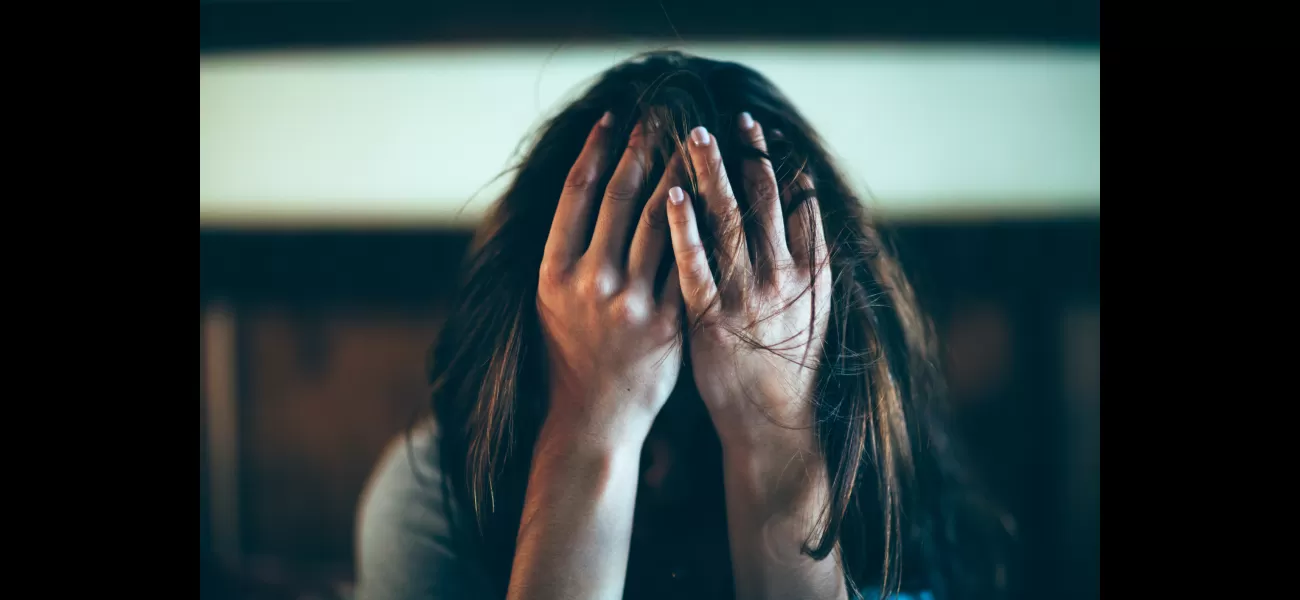A new treatment may offer unexpected relief for depression.
Needles are not a problem.
February 28th 2024.

Depression affects a vast number of individuals worldwide, with estimates showing that hundreds of millions are struggling with this debilitating disorder. However, there may be a glimmer of hope for those suffering, as researchers have discovered the powerful effects of acupuncture on depression, particularly when targeting the ear.
Scientists in Brazil have conducted a study that showed promising results for this ancient practice. They found that just 15-minute sessions, twice a week for six weeks, could improve recovery rates for depression by almost 60%. This is comparable to the effectiveness of traditional drug treatments.
According to the World Health Organization, depression is one of the leading causes of disability globally, affecting about 5% of adults. In Brazil, the prevalence of this disorder is even higher, with a staggering 15.5% of the population experiencing it. Sadly, many individuals, both in South America and around the world, do not receive adequate treatment due to the cost and side effects of antidepressants.
While there have been anecdotal reports of the effectiveness of auricular acupuncture (acupuncture of the ear) for depression, its safety and efficacy have not been established through trials. To further investigate, researchers conducted a study involving 74 patients with moderate to moderately severe depression. The participants were mostly women, with an average age of 29.
The study divided the participants into two groups, with both receiving 12 sessions of acupuncture over six weeks. One group received specific auricular acupuncture, targeting six points on the outer ear associated with treating depression. The other group received non-specific treatment, with needles placed on points not linked to mental health symptoms.
So, how does acupuncture work? In Western medicine, acupuncture involves stimulating sensory nerves under the skin and in the muscles, resulting in the production of natural pain-relieving substances, such as endorphins. Traditional acupuncture, on the other hand, is based on the belief that an energy called Qi flows through the body in channels called meridians. When this energy is blocked, it can cause illness, and acupuncture is believed to restore the flow of Qi and promote healing.
The results of the study showed that 58% of those receiving specific auricular acupuncture had improved by at least 50%, while 43% in the non-specific group reported recovery. Furthermore, those who received specific acupuncture were more likely to still be in recovery or remission after three months. The study also demonstrated minimal side effects, with most participants reporting only mild discomfort at the needle site.
Lead author Professor Daniel Maurício de Oliveira Rodrigues from UNISUL stated, "Our results showed almost 60% recovering from depression thanks to specific auricular acupuncture. According to other published studies on this topic, this is similar to the recovery rate for treatment with drugs." Dr. Alexandre Faisal Cury, co-author from USP, added, "We're witnessing a veritable epidemic of mood disorders, and the acceptance of traditional antidepressants as the gold standard treatment is not ideal. We need complementary options with proven benefits for patients with chronic depression who experience side effects and relapses."
While the study acknowledges the need for longer and larger studies to confirm these findings, the researchers are optimistic that this could be a new and effective treatment for depression. The study, published in the journal JAMA Network Open, offers hope for those struggling with this widespread mental health issue.
Scientists in Brazil have conducted a study that showed promising results for this ancient practice. They found that just 15-minute sessions, twice a week for six weeks, could improve recovery rates for depression by almost 60%. This is comparable to the effectiveness of traditional drug treatments.
According to the World Health Organization, depression is one of the leading causes of disability globally, affecting about 5% of adults. In Brazil, the prevalence of this disorder is even higher, with a staggering 15.5% of the population experiencing it. Sadly, many individuals, both in South America and around the world, do not receive adequate treatment due to the cost and side effects of antidepressants.
While there have been anecdotal reports of the effectiveness of auricular acupuncture (acupuncture of the ear) for depression, its safety and efficacy have not been established through trials. To further investigate, researchers conducted a study involving 74 patients with moderate to moderately severe depression. The participants were mostly women, with an average age of 29.
The study divided the participants into two groups, with both receiving 12 sessions of acupuncture over six weeks. One group received specific auricular acupuncture, targeting six points on the outer ear associated with treating depression. The other group received non-specific treatment, with needles placed on points not linked to mental health symptoms.
So, how does acupuncture work? In Western medicine, acupuncture involves stimulating sensory nerves under the skin and in the muscles, resulting in the production of natural pain-relieving substances, such as endorphins. Traditional acupuncture, on the other hand, is based on the belief that an energy called Qi flows through the body in channels called meridians. When this energy is blocked, it can cause illness, and acupuncture is believed to restore the flow of Qi and promote healing.
The results of the study showed that 58% of those receiving specific auricular acupuncture had improved by at least 50%, while 43% in the non-specific group reported recovery. Furthermore, those who received specific acupuncture were more likely to still be in recovery or remission after three months. The study also demonstrated minimal side effects, with most participants reporting only mild discomfort at the needle site.
Lead author Professor Daniel Maurício de Oliveira Rodrigues from UNISUL stated, "Our results showed almost 60% recovering from depression thanks to specific auricular acupuncture. According to other published studies on this topic, this is similar to the recovery rate for treatment with drugs." Dr. Alexandre Faisal Cury, co-author from USP, added, "We're witnessing a veritable epidemic of mood disorders, and the acceptance of traditional antidepressants as the gold standard treatment is not ideal. We need complementary options with proven benefits for patients with chronic depression who experience side effects and relapses."
While the study acknowledges the need for longer and larger studies to confirm these findings, the researchers are optimistic that this could be a new and effective treatment for depression. The study, published in the journal JAMA Network Open, offers hope for those struggling with this widespread mental health issue.
[This article has been trending online recently and has been generated with AI. Your feed is customized.]
[Generative AI is experimental.]
0
0
Submit Comment





